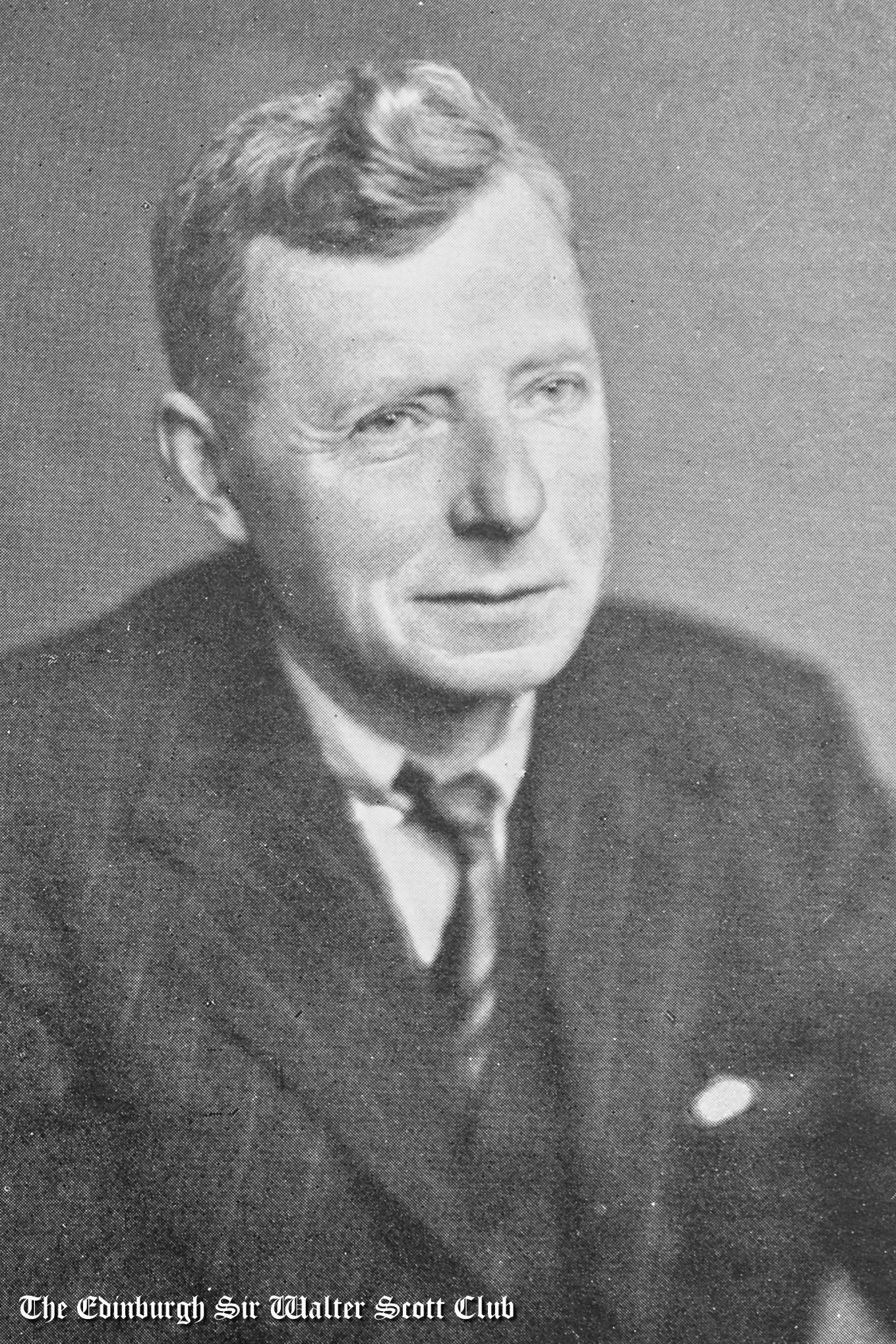1951
Our President in 1951/52 was:
Professor Sir Alexander Gray
He proposed the Toast to Sir Walter at our 44th Annual Dinner on Friday 12th January 1952 in The North British Station Hotel
Download the [transcript] or read the [bulletin]
Summary of the Speech:
Sir Alexander Gray’s address is a masterful, humorous, and deeply reflective meditation on Sir Walter Scott’s life and literary evolution, framed through the metaphor of apprenticeship. His speech is structured chronologically and thematically, charting Scott’s path from boyhood to literary prominence, while proposing three main reasons why Scots (and others) owe a debt to Scott.
Key Points from the Speech
1. The Challenge of Following Past Speakers
Gray begins with wry self-deprecation, noting how previous speakers had already covered much of Scott’s genius, “violating the Levitical Law” by leaving “no gleanings for the poor and the stranger.” Still, he embraces the duty to "testify" to Scott’s enduring significance.
2. Scott’s Apprenticeship
Rather than focus on Scott’s mature work, Gray devotes attention to the formative years of Scott’s literary training:
- Childhood Influences: Raised on ballads and folklore, especially by his mother. Recurrent illness and rural isolation encouraged voracious, wide-ranging reading.
- Percy’s Reliques: This pivotal discovery ignited Scott’s passion for balladry.
- German Romanticism: Sparked by a 1788 lecture by Henry Mackenzie, leading to Scott’s translation of Bürger’s Lenore—his literary debut.
- Liddesdale Excursions: With Mr Shortreed, Scott collected ballads, met diverse Scots, and gathered material that would populate his fiction.
- Publication of The Minstrelsy of the Scottish Border (1802–03): This marks the end of Scott’s apprenticeship, evidencing not only poetic talent but deep historical knowledge and a burgeoning prose style.
3. Hallmarks of Scott’s Work
Gray identifies several unique traits that defined Scott as a writer:
- Ballad Tradition Influence:
- Scott was first and foremost a storyteller, not a moralist or theorist.
- He valued entertainment over artistic pretension, in the manner of a traditional ballad-singer.
- His writing process was impromptu, often allowing stories to “run away” from him.
- Narrative Motion:
- Scott’s characters are nearly always in motion—riding, chasing, fleeing. His fiction is imbued with dynamism, much like old ballads.
- Historical Curiosity and Reconciliation:
- His novels were rooted in Scottish history—especially the 18th century—and aimed to reconcile Highland and Lowland traditions, Catholic and Protestant factions.
4. Scott the Historian
Gray defends Scott against critics like Carlyle who accused him of having “no message.” He asserts:
- Scott’s deep sense of humanity, especially toward the common people.
- His role in shaping Scotland’s image both domestically and abroad.
- His ability to make Scottish history vivid, compelling, and emotionally honest.
5. The “Dreadful Heroines”
Gray explores the criticism that Scott’s female characters are dull or symbolic. He argues this stems partly from ballad tradition, where women are often idealised or anonymous. However, characters like Jeanie Deans stand out as exceptions of real depth.
6. A Threefold Debt to Scott
Gray concludes with a passionate summary of why Scott is owed a national and literary debt:
- Patriotic Legacy: More than Burns, Scott internationalised the image of Scotland and helped Scots connect with their ancestry.
- Delight and Health: He created a wholesome, dignified imaginative world free of vulgarity.
- Moral Example: Through his life—marked by courage, patience, and humility—Scott inspired others. His Journal, written during financial ruin, shows noble resolve, even to the point of hoping his own death would help his creditors.
Interesting Points Worth Highlighting
- The image of Scott “writing grammar as I speak” becomes a comic yet touching defence of his relaxed literary style.
- The anecdote about discovering Waverley in an old chest while looking for fishing-tackle parallels Saul finding a kingdom while searching for lost asses.
- Gray’s closing reference to Carlyle’s final verdict on Scott—“No sounder piece of British manhood was put together in that eighteenth century of Time”—is used to brilliant effect in sealing the tribute.
Download the [transcript] or read the [bulletin]

Subsidiary Toasts*
The toasts of "The King" and "The Royal Family" were duly honoured.
Thereafter Mr Douglas A. Foulis proposed the toast of “The Imperial Forces,” to which Air Vice-Marshal H. T. Lydford, C.B., C.B.E., A.F.C. replied.
“The City of Edinburgh” was proposed by The Rt. Rev. K. C. H. Warner, D.S.O., D.D., The Bishop of Edinburgh, and replied to by Bailie J. B. Mackenzie on behalf of the Lord Provost.
The health of the Chairman was proposed by Mr Henry A. Shewan, Q.C.
*It is regretted that it has proved impracticable to reproduce the speeches other than that of the Chairman.


